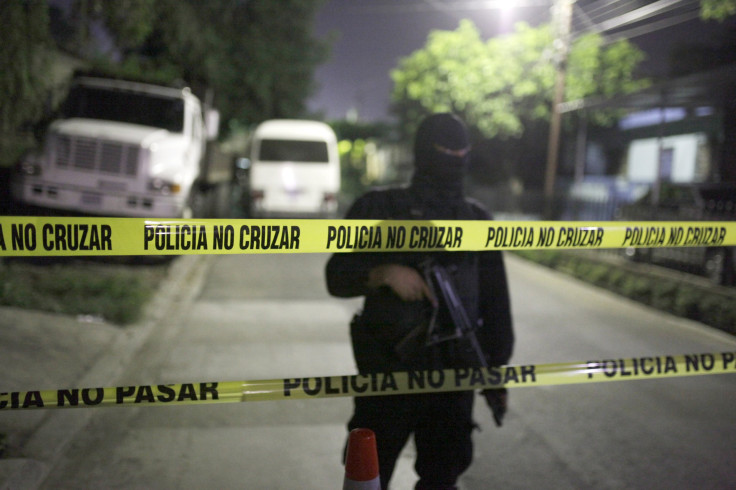Over 200 Deportees From US To El Salvador Abused Or Killed, Says Human Rights Group

KEY POINTS
- The Human Rights Watch report said over 200 deportees from the U.S. have been killed or faced abuse since returning to El Salvador
- It warns the number is likely much higher due to a lack of reporting deaths and abuse out of fear of reprisal from gangs
- Over 900,000 Salvadorans in the U.S. could become targets of such violence if the U.S. government ends immigrations programs like Temporary Protected Status and Deferred Action for Childhood Arrivals
A report released Wednesday from Human Rights Watch said that over 200 people deported from the U.S. to El Salvador have been abused or killed since 2013.
Human Rights Watch put together the report in an effort to highlight the growing humanitarian crisis in El Salvador. It specifically focused on the over 200,000 Salvadorans deported by the U.S. from 2013 to 2019 and how the extreme violence in the country has affected them.
“Some deportees are killed following their return to El Salvador,” the report said. “In researching this report, we identified or investigated 138 cases of Salvadorans killed since 2013 after deportation from the US.”
The report also warns that “there is no official tally” and that “the number of those killed is likely greater.”
However, investigators had a harder time identifying anyone who had suffered some form of abuse after returning to El Salvador who had come forward. They were able to identify “over 70 instances in which deportees were subjected to sexual violence, torture, and other harm, usually at the hands of gangs, or who went missing following their return.”
Many victims fled recruitment by gangs like MS-13, while others had simply been targets of harassment.
One of the cases highlighted in the report was about a then-20-year-old woman identified as Angelina N. who fled to the U.S. in 2014 to escape abuse from her daughter’s father, identified as Jaime M., and another male gang member, identified as Mateo. She was deported to El Salvador in October 2014 and said Mateo’s harassment quickly resumed.
“[He] came inside and forced me to have sex with him for the first time. He took out his gun.… I was so scared that I obeyed … when he left, I started crying,” Angelina said. “I didn’t say anything at the time or even file a complaint to the police. I thought it would be worse if I did because I thought someone from the police would likely tell [Mateo].… He told me he was going to kill my father and my daughter if I reported the [original and three subsequent] rapes, because I was ‘his woman.’ [He] hit me and told me that he wanted me all to himself.”
The report warns of the risk longtime Salvadorans face if deported from the U.S.
Over 45% of the 1.2 million Salvadorans who aren’t U.S. citizens are legal U.S. residents due to immigration programs like Temporary Protected Status and the Deferred Action for Childhood Arrivals, or DACA. However, both have been a regular target of President Trump, who has worked to end both programs as part of his larger efforts to tighten immigration policies. Work authorizations from the Temporary Protected Status program are going to expire by January 2021, while DACA’s future is in the hands of the Supreme Court as it decides whether to overturn or uphold Trump’s decision to end the program.
Rolling back the programs would open up over 900,000 Salvadorans to deportation, many of whom would appear as immediate targets for gangs.
“This has been a brick-by-brick erection of a legal wall by the Trump administration in an attempt to effectively end asylum in the U.S.,” report co-author Alison Lean Parker told NBC News. “Salvadorans are by no means the only nationality, but they are one of the populations that will suffer greatly from this.”
A Pew Research analysis in September estimated that there are 2.3 million Hispanics of Salvadoran origin in the U.S. in 2017. Salvadorans account for 4% of the Hispanic population.
© Copyright IBTimes 2024. All rights reserved.





















